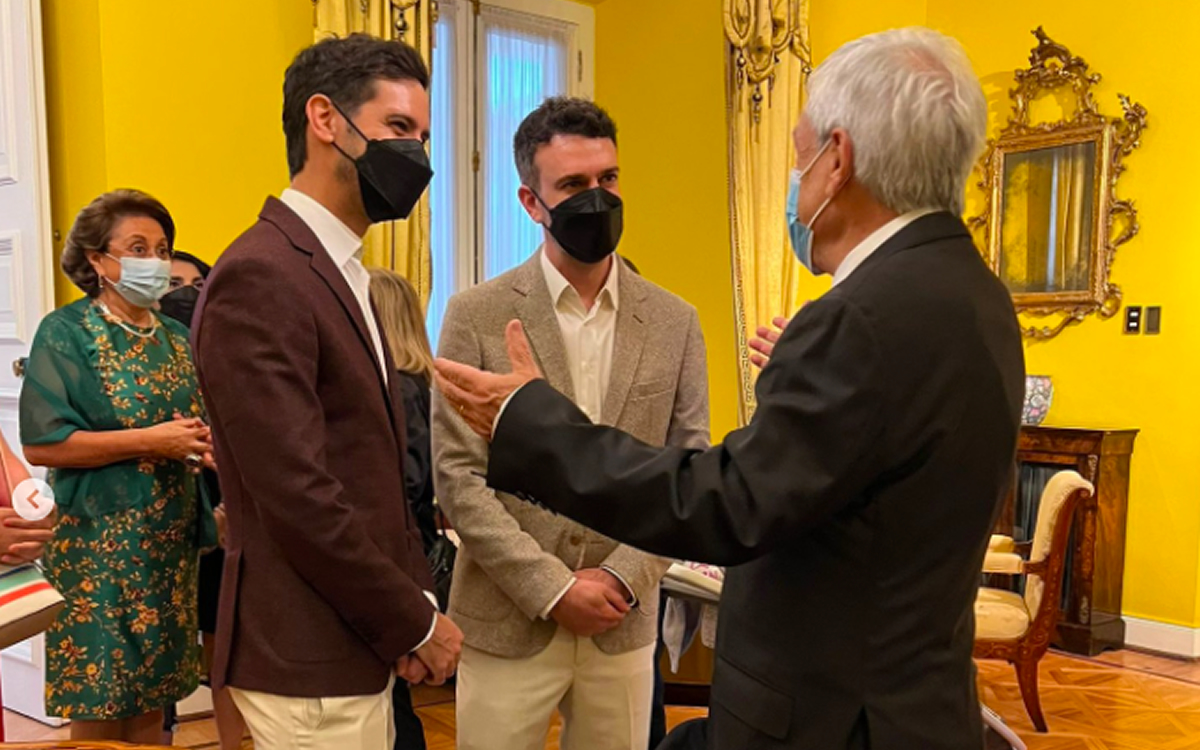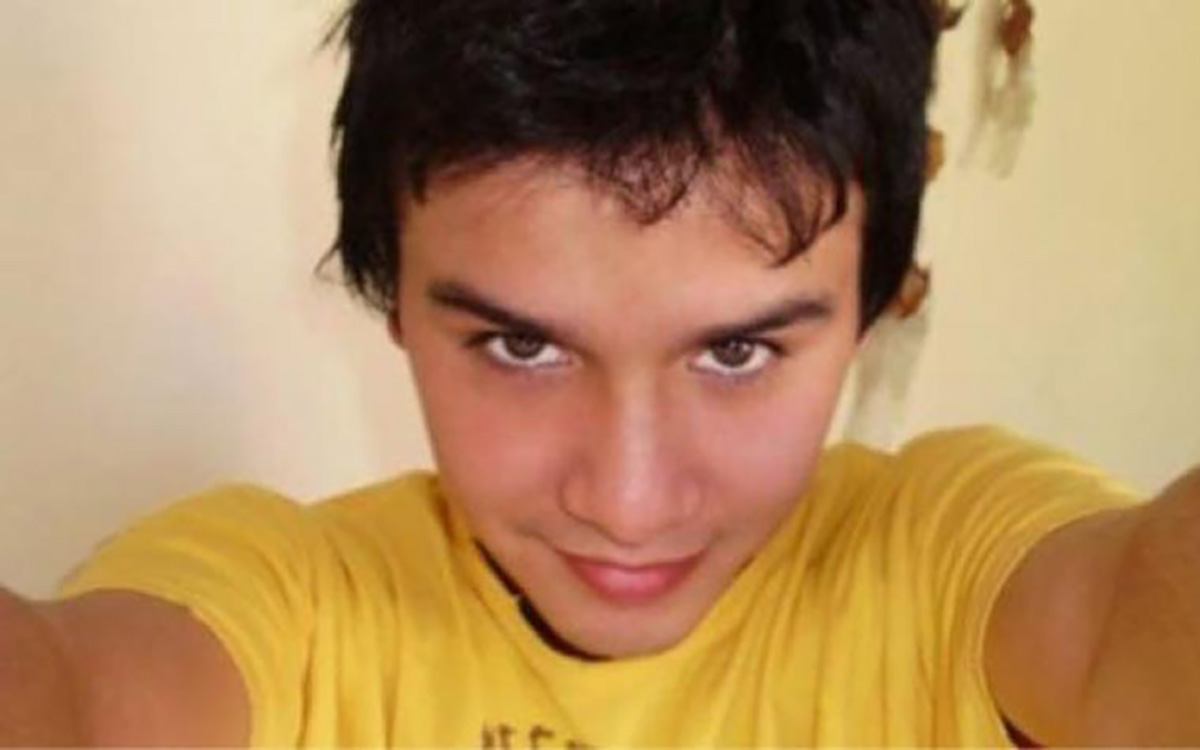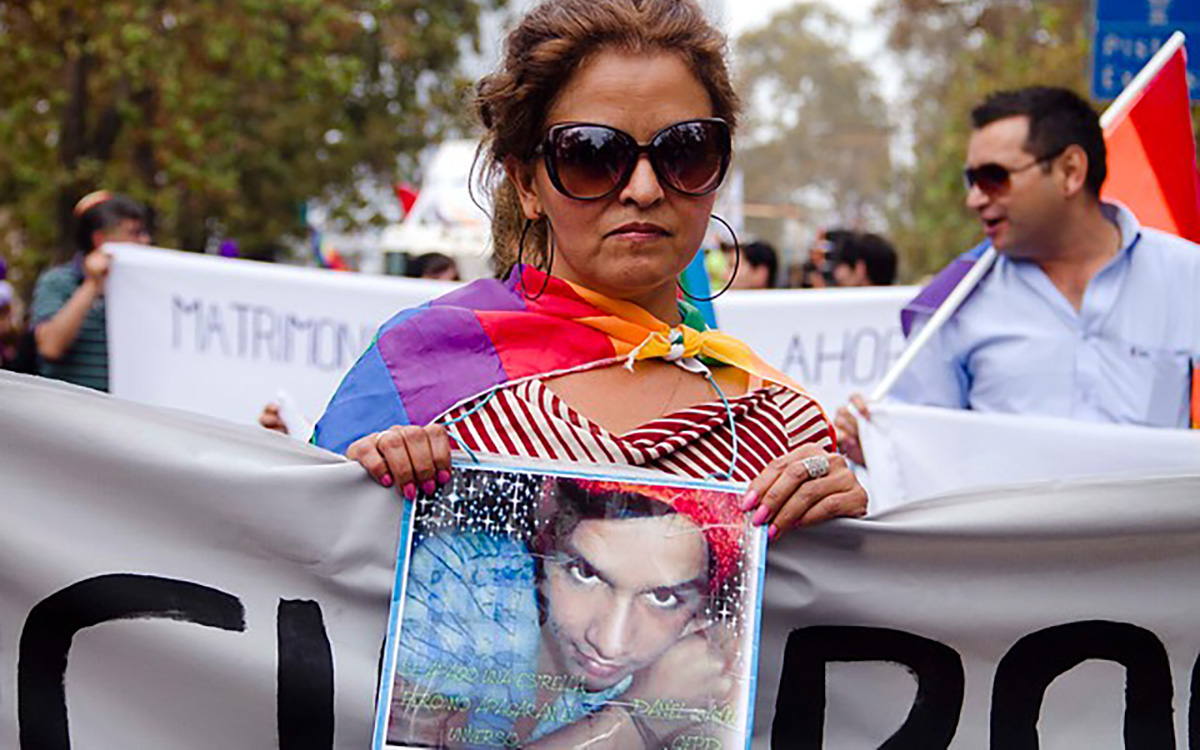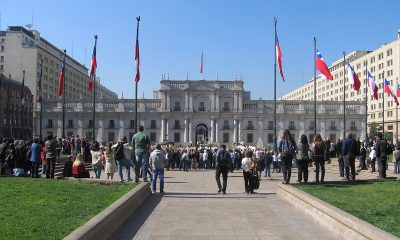South America
Former Chilean President Sebastián Piñera dies in helicopter crash
Previous head of state signed marriage equality, gender identity laws

Former Chilean President Sebastián Piñera died on Tuesday when the helicopter he was piloting crashed near Lake Ranco during heavy rains.
Initial reports indicate Piñera, 74, was piloting his private helicopter when it plunged into the lake, which is located in the Los Ríos Region of southern Chile. One of his sisters was among the three other people who was on board.
The former president owned a summer house on Lake Ranco. Family members and people close to him say he was in the area to have lunch at the home of businessman José Cox, a close friend and associate. Piñera boarded his helicopter after 3 p.m. local time (1 p.m. ET) and the accident occurred a few minutes later.
Reports indicate his relatives managed to survive after they jumped into the water, but Piñera was not able to escape. The helicopter sank in more than 130 feet of water.
Piñera, who was Chile’s president between 2010-2014 and 2018-2022, was the country’s first right-wing president since democracy returned to the country in 1990. Piñera’s government enacted most of Chile’s LGBTQ rights laws: The Anti-Discrimination Law in 2012, the Gender Identity Law in 2018 and the Equal Marriage Law in 2021.

His first administration sent a civil unions bill to Congress, and it became law in 2015. Piñera also implemented public policies that sought to improve queer Chileans’ quality of life.
Javiera Zuñiga, spokesperson for the Movement for Homosexual Integration and Liberation, the main Chilean LGBTQ organization known by the acronym Movilh, told the Washington Blade that “our organization is deeply saddened by the death of the former president, who played a crucial, leading and pioneering role for a president in the promotion and defense of the human rights of LGBTIQ+ people, same-sex couples and same-parent families.”
María José Cumplido, executive director of Fundación Iguales, another advocacy group, said “our condolences to the family of former President Sebastián Piñera for his passing.”
“We remember his commitment to the enactment of the Anti-Discrimination Law, the Gender Identity Law and the Consolidation of Equal Marriage, historic achievements for the LGBT+ community in Chile,” said Cumplido.
“I am very sorry for the death of President Piñera,” said Pablo Simonetti, an activist and writer, on his X account. “From the right he opened paths towards the integration of LGBT people and led the great milestone of equal marriage. My condolences to his family and friends, especially to (his wife) Cecilia Morel.”
President Gabriel Boric’s government also mourned Piñera’s death and announced a period of national mourning. A state funeral for Piñera will also take place.
South America
Argentina government dismisses transgender public sector employees
Country’s Trans Labor Quota Law enacted in 2021

Protests have broken out across Argentina in recent weeks after the dismissal of transgender people from their government jobs.
President Javier Milei’s action is in stark contract with the progress seen in 2023, where the government’s hiring of trans people increased by 900 percent within the framework of the Trans Labor Quota Law that had been in place since 2021.
Among those affected is Sofia Diaz, a “survivor” who shared her testimony with the Washington Blade hours after she traveled from Chaco Province to Buenos Aires to protest her dismissal.
Presentes, an LGBTQ news agency, reported the government dismissed more than 85 trans employees in less than two weeks.
Diaz, 49, holds a degree in combined arts. She joined the National Social Security Administration (ANSES) in 2022 under the Trans Labor Inclusion Law. The layoffs began in January and left many people feeling uncertain and anguished. It was her turn a few days ago.
Diaz in an interview recounted how the situation became progressively more complicated, with difficulties in accessing information about her employment status and the eventual confirmation of dismissals through WhatsApp messages. This government action, according to Diaz, violates the law.
“We were on a Friday, I think on March 24, in the office and we have a WhatsApp group of other colleagues from all over Argentina who entered through the trans labor quota and they tell us if we can get our pay stubs on the intranet,” Diaz recalled. “So, I tried to enter, I could not, I talked to two other colleagues and they told me no, they could not, and so we went to another person. He couldn’t either.”
“Some people told us that it could be a system error. Well, we were never calm, let’s say not how this issue of installing fear and the perversion with which they do it ends,” she added. “This sadism of … inflicting pain and speculating with your misfortune and so on … is something that characterizes Javier Milei’s government.”
Diaz recalled a list of those dismissed from the agency began to circulate from the union in the afternoon. A colleague passed it on to her, “and well, unfortunately I was also on that list.”
“At that moment the whole weekend went by with anguish, crying, and talking with other colleagues from other places, not only trans, but everyone, everyone and everyone,” she said. “On Monday when we went to try to enter, we could not enter with the biometric, which is the thumb we had to use every morning to enter.”
Despite the difficult moment through which she is going, the trans activist stressed to the Blade that she will continue protesting and will even sue the government because her dismissal is illegal and “violates the constitution itself.”
The LGBTQ community and its allies have mobilized and organized demonstrations, highlighting the importance of defending the rights won and fighting against discrimination and exclusion. Diaz emphasized the fight is not only for the people affected today, but also for future generations, saying the historical memory of the struggles for inclusion and social justice must be kept alive.
“The Argentine government thus faces a key challenge in human and labor rights, where public pressure and social mobilization can play a determining role in protecting the rights of LGBTQ+ people,” Diaz said.
South America
Daniel Zamudio murderer’s parole request denied
Raúl López Fuentes convicted of murdering gay man in Chilean capital in 2012

Chile’s Parole Commission on Tuesday rejected a request to allow one of the four men convicted of murdering Daniel Zamudio in 2012 to serve the remainder of his sentence outside of prison.
Raúl López Fuentes earlier this month asked the commission to release him on parole. Zamudio’s family and members of the Movement for Homosexual Integration and Liberation, a Chilean LGBTQ rights group, had gone to court to block the request.
Among the arguments put forward that influenced the commission’s decision is what Movilh categorized as his “high risk of recidivism, linked to the adherence of an antisocial behavior with a tendency to minimize his acts transgressing social norms.”
The commission pointed out that López has psychopathic traits because he is aware of the damage he did to Zamudio and his family.
“In addition, he maintains a high risk of violence, not being advisable to grant the benefit,” the report said.
Zamudio was a young Chilean man who became a symbol of the fight against homophobic violence in his country and around the world after López and three other young men with alleged ties to a neo-Nazi group beat him for several hours in Santiago’s San Borja Park on March 2, 2012. Zamudio succumbed to his injuries a few weeks later.
The attack sparked widespread outage in Chile and prompted a debate over homophobia in the country that highlighted the absence of an anti-discrimination law. Lawmakers in the months after Zamudio’s murder passed a law that bears Zamudio’s name.
López in 2013 received a 15-year prison sentence after he was convicted of killing Zamudio. Patricio Ahumada received a life sentence, while Alejandro Angulo Tapia is serving 15 years in prison. Fabían Mora Mora received a 7-year prison sentence.
Zamudio’s mother, Jacqueline Vera, exclusively told the Washington Blade after the commission rejected López’s request that “we as a family are calmer.”
“Even with my husband we were in a lot of pain at the beginning. It was like a blow of very strong emotions, so we tried to stay calm because we still had to solve the problem,” Vera said. “We had four days to solve it.”
López will have to serve the remaining three years of his sentence before his release.
“I will continue working to improve the Zamudio Law and so that this murderer does not leave prison because he is a danger to society, he does not represent repentance and people like this cannot be free,” she said. “For the same reason, we have to work so that hate crimes have life imprisonment and that is what we will concentrate on.”
South America
Man convicted of killing Daniel Zamudio in Chile seeks parole
Raúl López Fuentes in 2013 sentenced to 15 years in prison

One of the four men convicted of murdering a young gay man in the Chilean capital in 2012 is seeking parole.
Raúl López Fuentes in 2013 received a 15-year prison sentence after he was convicted of killing Daniel Zamudio.
Zamudio was a young Chilean man who became a symbol of the fight against homophobic violence in his country and around the world after López and three other young men with alleged ties to a neo-Nazi group beat him for several hours in Santiago’s San Borja Park on March 2, 2012. Zamudio succumbed to his injuries a few weeks later.
The attack sparked widespread outage in Chile and prompted a debate over homophobia in the country that highlighted the absence of an anti-discrimination law. Lawmakers in the months after Zamudio’s murder passed a law that bears Zamudio’s name.
Patricio Ahumada received a life sentence, while López and Alejandro Angulo Tapia are serving 15 years in prison. Fabían Mora Mora received a 7-year prison sentence.
López has asked the Seventh Santiago Guarantee Court to serve the last three years of his sentence on parole. Zamudio’s family and Jaime Silva, their lawyer who works with the Movement for Homosexual Integration and Liberation, oppose the request.
Movilh represented Zamudio’s family after his murder.
Zamudio’s mother, Jacqueline Vera, during an exclusive interview with the Washington Blade said López’s petition “provoked all the anguish, all the commotion of his time.”
“It was very cruel because in fact two days before we were at Daniel’s grave, where it was 12 years since his death and the beating,” said Vera. “He really does not deserve it.”
“We have gone through very difficult moments,” she added.
The mother, who later created a foundation to eradicate discrimination in Chile, was emphatic in indicating that she and her family “do not accept the release of this guy because he is a danger to society and a danger to ourselves.”
“At the last hearing where they were sentenced, they told us that we are going to remember them when they get out,” said Vera. “They threatened us with death. There is a video circulating on social networks where they were in front of me and they laughed and made fun of me. They told me that I remembered that I had three more children.”

Regarding the possibility that the Chilean justice system will allow López to serve the remaining three years of his sentence on parole, Vera said “with the benefits here in Chile, which is like a revolving door where murderers come and go, it can happen.”
“In any case, I don’t pretend, I don’t accept and I don’t want (López) to get out, I don’t want (López) to get out there,” she said. “We are fighting for him not to get out there because I don’t want him to get out there. And for me it is not like that, they have to serve the sentence as it stands.”
LGBTQ Chileans have secured additional rights since the Zamudio Law took effect. These include marriage equality and protections for transgender people. Advocacy groups, however, maintain lawmakers should improve the Zamudio Law.
“We are advocating for it to be a firmer law, with more strength and more condemnation,” said Vera.
When asked by the Washington Blade about what she would like to see improved, she indicated “the law should be for all these criminals with life imprisonment.”
-

 State Department4 days ago
State Department4 days agoState Department releases annual human rights report
-

 District of Columbia2 days ago
District of Columbia2 days agoCatching up with the asexuals and aromantics of D.C.
-

 South America2 days ago
South America2 days agoArgentina government dismisses transgender public sector employees
-

 Politics5 days ago
Politics5 days agoSmithsonian staff concerned about future of LGBTQ programming amid GOP scrutiny










